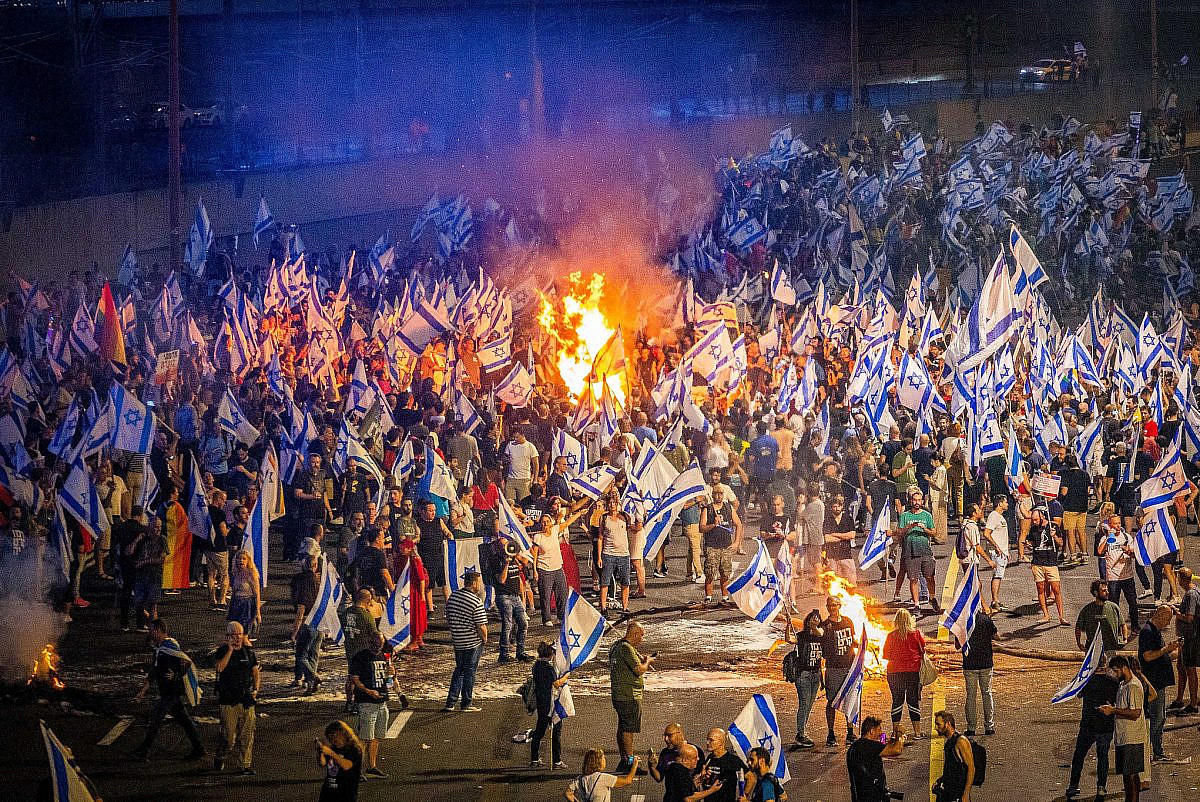This article originally appeared in “The Landline,” +972’s weekly newsletter. Subscribe here.
As the drums of Israeli protesters continued to beat in Tel Aviv, Ben Gurion Airport, and other locations across the country this week, the Israeli army began winding down a brutal invasion and assault on Jenin refugee camp that left behind destruction, devastation, and blood.
The sight of Palestinian refugees fleeing their homes in the dark, their hands raised over their heads, not only conjures memories of the Nakba. It is a reminder that the dispossession of Palestinians has never ended — that these very families either lost their homes in 1948, or are the descendants of those who did. Palestinians know full well that they are facing a belligerent, uninhibited state that, in the guise of security and victimhood, will spare no effort — dispossession, killing, ethnic cleansing. And perhaps the worst is yet to come.
Israel is used to presenting the occupation to the world as an internal Israeli matter, while its Jewish citizens are used to treating it as a matter of foreign affairs, disconnected from everyday life, like a war in some distant country. This, along with the deeply-seated militarism and the blind worship of the army in Israeli society, means that not only did the anti-government protests not come out against the assault on Jenin, its leaders even praised the “brave men” who took part in the invasion — the same ones who, among other things, bombed the Jenin Freedom Theatre, which serves as a paragon of the human spirit amid the hell that Israel has created in the camp.
As usual, it was Palestinian citizens of Israel who, together with a handful of Jewish activists, immediately led the protest against the army’s crimes in Jenin, and faced severe police violence in return. Meanwhile, faint criticism could also be heard from some on the Zionist left, who accused Prime Minister Benjamin Netanyahu of launching a military operation in order to divert attention from and ultimately silence the public protest against him.Yet we must not reduce the invasion of Jenin to Netanyahu’s political calculus vis-à-vis the protest movement. The oppression of the Palestinians did not begin this past January with the beginning of the demonstrations, nor will it end when the demonstrations cease. The frequent, lethal attacks on Jenin, as well as the routine assaults on Gaza, the ongoing ethnic cleansing in the occupied territories, the encouragement of pogroms by settlers, and the crackdown on Palestinians on both sides of the Green Line — all of these are part of a greater Israeli policy, which is formulated with chilling precision in what Finance Minister Bezalel Smotrich calls his Decisive Plan, which seeks to bring Palestinians to heel, and wholesale expel those who refuse to bow their heads.Those who wish to fight for true democracy must let go of the Jewish-Israeli narcissism that stops us from opening our eyes to the places where Israel tramples not only on the idea of democracy, but the very idea of what it means to be human, and begin our struggle from there.


